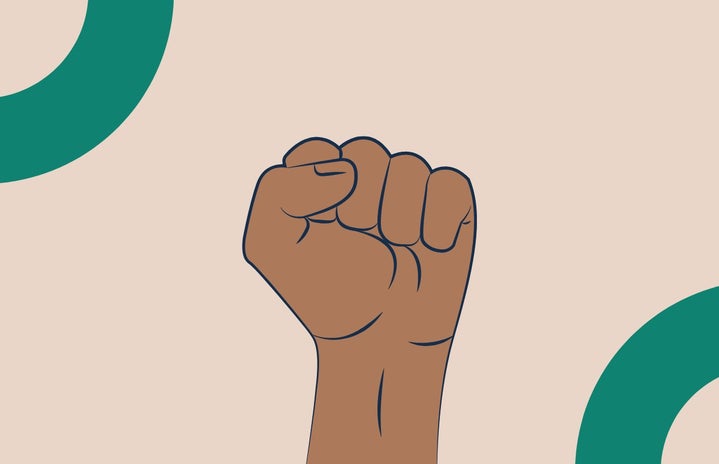For this week’s Campus Appreciation theme, I reached out to colleagues from Laurier Students’ Public Interest Research Group (LSPIRG) to give you all the chance to get to know this wonderful collective that does amazing support work in the name of social justice!
One of the coolest parts? All Laurier students are already members! Getting involved is as simple as reaching out. Check out my interview with Jay Rideout, the Branford Campus’ coordinator, for the low-down on all things LSPIRG:
- Introducing – Jay!
-
“My name is Jay Rideout (they/them pronouns). I’m a non-binary, trans person and am a settler with British, French and Irish ancestry. I grew up on the south coast of Newfoundland on Mi’kmaq and Beothuk territory, and am currently living in so-called Brantford on Anishinaabe, Haudenosaunee and Neutral territory. I am 27 years old and have been at Laurier Brantford since I was 18. After completing my under-grad and graduate degrees on campus, I took a year off before coming back to work in the LSPIRG office.”
- What exactly is LSPIRG and what are its values?
-
“LSPIRG is a chapter of a broader network of PIRGs. Our goal is to work with students, staff, faculty and community members around social justice and environmental topics.
We provide educational opportunities (such as workshops and trainings), community building (through programming and providing social space and resources) and support (through safety planning, strategizing around harmful situations taking place on campus and in the community, and being a resource for folks who are looking to plan their own actions).
Our values are social justice, community, activism, healing justice and accountability, to name a few.”
- What is your position with LSPIRG and why did you decide to get involved?
-
“My current position is the Volunteer and Program Coordinator for the Brantford campus. When I was first hired, I held the position of Communications and Outreach Director, but due to student opt-outs from Ford’s Student Choice Initiative, we had to lay off one staff member and have cut my previous position. I moved into this position in May 2019.
I first heard about LSPIRG when engaging in student activism about 4 years ago. I got to know the staff and what LSPIRG was doing and quickly began to rely on a lot of the resources it has to offer. Shortly after, the Communications and Outreach Director position opened up and I jumped on the opportunity!”
- What’s LSPIRG up to right now? How can students get involved?
-
“There’s a bunch of different ways folks can get involved with LSPIRG. Students could apply for one-time funding or could get involved more directly with LSPIRG through volunteering. You could also come out to any of our events (follow us on Facebook or Instagram to see what we’re up to) or sign-up for our newsletter so you can see what else is happening on campus!
Lately, our focus has been around community care and healing programming. We recently held a post-election community care space (after the federal elections) to hang out during what can be a difficult time for lots of folks. We’ve also been supporting our research and action groups: the first ever Brantford food forest is being planted, and 16 Days of Action to End Gender-Based Violence is coming up!
We’ve been spending lots of time in conversation with the provincial network of PIRGs around the Student Choice Initiative, and we’ve been adjusting to having a staff member leave. Because of this, we haven’t been able to run programming as frequently as we’d like to, but we still have lots of things in the works! Make sure you follow us to see what we’re up to.”
- What successes and challenges has LSPIRG faced?
-
“As with anyone doing this work, I feel like there’s always going to be challenges. The work is hard and often it impacts us directly because it’s our own identities or lived realities that are being targeted. It can be exhausting and discouraging … and burnout is real and has been something we’ve been trying to prioritize responding to.
But even though it’s difficult, we’ve had a lot of amazing things happen, too. One of the biggest things is the community we’ve built around this work. All the co-organizers, [students and community members, and all the folks we connect with online that we sometimes never meet in person].
- What has the student/community response been like for LSPIRG?
-
“There has been such an amazing community that’s been built through LSPIRG and all of our collaborations on campus and in the community. It’s the main thing that makes the work we do possible; we couldn’t do half of what we do without those connections. I think whenever you’re doing work around social justice or environmental things, there’s going to be struggles, especially given the current rise in individual and systemic targeting of marginalized folks.…[But] when difficult situations come up, it’s really comforting to see that we’ve built enough trust and connection for folks to feel comfortable coming to us to either tell us or ask for support with organizing a response. It feels like our community is growing bigger and bigger every year, which can sometimes feel overwhelming for a staff of two, but we wouldn’t have it any other way.”
- Do you have a favourite project you’ve worked on?
-
“In terms of in-person programming, my favourite project is Radical Orientation Week (or Rad Week). Similar to O-week, LSPIRG runs a week of programming during the beginning of September. It’s an amazing opportunity to collaborate with all of our partners and is always a jam-packed week!
In terms of more online/campaign projects, I really love our “Home But Not Alone” campaign. We created this last year around the winter holidays but developed it in a way that could make it relevant for any longer break (summer, reading weeks, long weekends etc.). A lot of it is validation-based content such as, ‘Chosen family is real family.’
And we also have content around how to respond to disclosures, grounding tips, and a list of crisis lines and where to get support for safety planning. This campaign hasn’t got nearly as much attention as some of our more popular ones like #IAmNotACostume and Know The Land, but I really like it because it provides practical tips for folks and has a lot of important resources collected in one area.”
- What do you hope to see for LSPIRG in the future?
-
“LSPIRG and PIRGs in general are becoming more and more vital to the wellbeing of our campuses and communities as we see a rise in politics that directly impacts the health and safety of many of us. I would love to see us continue to build those connections, continue being a resource for folks looking to do activism work, and continue being an advocate for students and community members in whatever ways we can.”
Want to know more or get involved with LSPIRG? Reach out at info@lspirg.org!



